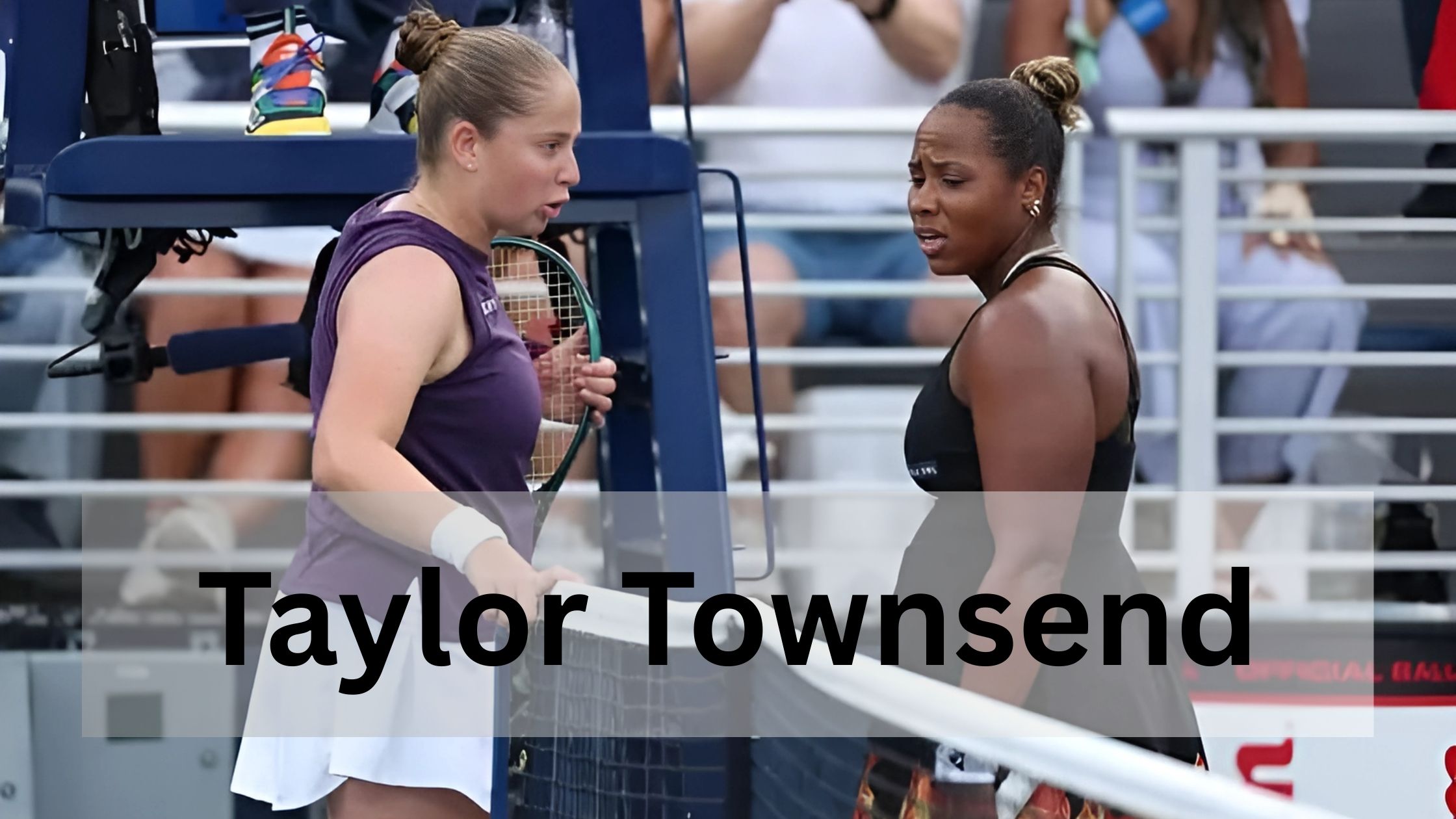American fan favorite Taylor Townsend had just delivered a stunning 7-5, 6-1 second-round defeat to the always-volatile 25th seed, Jelena Ostapenko. What should have been a routine net-side handshake quickly spiraled into a heated argument that has since dominated tennis headlines.
So, what exactly happened? Let’s unpack the incident that has everyone talking.
The Spark: A Net Cord and a Missing “Sorry”
The initial flashpoint was a common tennis occurrence: a net cord. During a crucial point, a shot from Townsend clipped the tape, trickled over, and landed in her favor. In tennis, while not an official rule, there’s a long-standing tradition of players offering a quick, apologetic hand raise for a “lucky” net cord.
According to Ostapenko, Townsend didn’t offer this customary gesture. Seemingly festering on this perceived disrespect, the Latvian star approached the net not to congratulate, but to confront.
The Fire: “You Have No Education”
What followed was an uncomfortable and audible altercation. Microphones picked up Ostapenko repeatedly telling Townsend, “You have no education,” and “You have no class.” She also reportedly challenged the American, telling her to “see what happens” when they play outside the U.S.
Townsend, to her credit, didn’t back down. She fired back, telling Ostapenko to “take the L” and that she needed to “learn how to take a loss better.” She then turned to the New York crowd, whipping them into a frenzy of celebration as a visibly upset Ostapenko was booed off the court.
The Aftermath: A Clash of Perspectives
In the post-match press conferences and on social media, the two players stood firmly by their versions of events.
Ostapenko’s stance was all about the “unwritten rules” of tennis. She took to Instagram to explain her frustration, writing that Townsend was “very disrespectful” and that most players on tour follow this code of conduct. She firmly denied any racist undertones to her “no education” comments, stating, “I respect all nations of people in the world.”
Townsend’s response was a masterclass in composure and strength. She stated she simply wouldn’t tolerate disrespect. “If I show respect to you, I expect respect as well. That’s just the fact of the matter,” she said.
She also addressed the specific language used, noting that being labeled “uneducated” is a painful stigma often placed on the Black community, but she chose not to internalize it. “I know that it’s so far from the truth,” she stated. Her ultimate focus was on her victory and setting an example for her young son.
Beyond the Drama: What’s Really at Play?
This incident is more than just tennis gossip. It highlights a fascinating tension in modern sports:
- Unwritten Rules vs. Individual Expression: Is the net-cord apology a mandatory sign of respect or an optional, old-school formality? As the game evolves with more diverse personalities, these traditions are increasingly questioned.
- The Privilege of a Home Crowd: Ostapenko’s complaint about Townsend playing in “her homeland” touches on a real dynamic in tennis. A passionate home crowd can be a massive advantage, but does it excuse a player from criticism?
- The Weight of Words: The phrase “no education” carries heavy historical baggage, whether intended or not. The incident serves as a reminder that in our global sport, word choice matters immensely.
The Final Word
In the end, the scoreboard is the ultimate truth. Taylor Townsend moved on to the third round, empowered and backed by a roaring home crowd. Jelena Ostapenko left the grounds, her frustrations spilling over yet again.
This Townsend vs. Ostapenko match will be remembered not for the brilliant tennis Townsend played to win, but for the fiery argument that followed. It was a clash of personalities, cultures, and expectations—a raw, human moment that proves sometimes the most compelling battles happen after the final point is won.
Other Using Link https://denverenews.com/tim-patrick/







